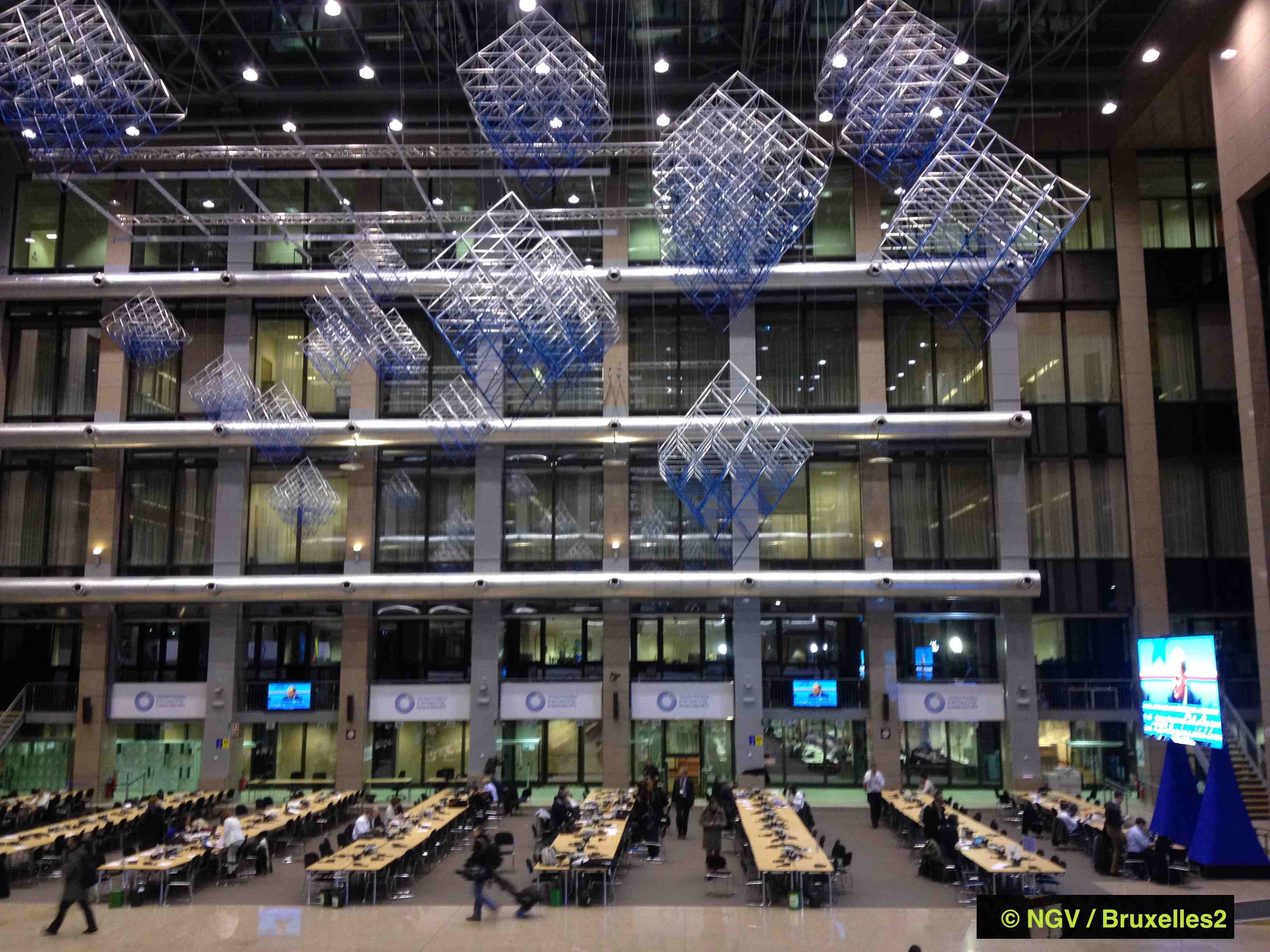Is the Permanent Structured Cooperation a good old idea that deserves a detour?
(B2) Let us have no illusions, the establishment of permanent structured cooperation, as it is conceived today, could well not achieve the qualitative leap hoped for... if we do not resolve a fundamental question, only one, warns Frédéric Mauro.

No less than five initiatives launched
For European defence, the current times appear phenomenal as the acceleration seems obvious... The year 2017 will go down in history as a prosperous year, with no less than five substantial initiatives launched or approved: the launch of the European Defense Fund , the establishment of permanent structured cooperation (PESCO), the beginnings of a European defense planning process, an embryonic headquarters which does not yet say its name and finally the open possibility of militarily equipping the forces of the countries partners trained by European forces.
The fourth attempt for Europe
With the exception of the "European defense community" largely embellished in the collective imagination, but whose main objective was to gain acceptance for the rearmament of Germany under American command, this is the fourth time that the Europeans have tried to give substance and life to "European defence", whatever the ambiguities of this portmanteau word in which everyone puts the content they want.
The (small) result of Maastricht
The first took place in the years 1990-1992 between the Germans and the French. Very ambitious in its intentions, it left us only two words in the Treaty of Maastricht – common defense – and a tool that was never or almost never used: the Franco-German brigade.
The (broken) momentum of Saint-Malo
The second took place in Saint-Malo in 1998 between the British and the French and gave rise to the idea that Europe should equip itself with an "autonomous capability" based on credible military means, in order to manage crises. that would occur in its vicinity. From this period we are left with EADS which has become Airbus, a company almost like the others, the European Defense Agency which has not become the hoped-for European Armaments and Research Agency, fifty billion euros of cooperative armament programs, managed within OCCAr, which have left a lot of resentment, and a whole chapter of provisions in the Treaty of Lisbon, on the common security and defense policy, among which is precisely the Permanent structured cooperation.
An (unsuccessful) attempt via the market
The third is that of the years 2007-2010 which left us, on the one hand, with two so-called "defence package" directives, unsuccessful attempts to consolidate the arms market by acting on supply and, on the other , the creation of the European command for air transport which is a real success.
A fourth way in search of authenticity
Will the fourth attempt, which began on June 23, 2016 with the decision of the British people to leave the Union, be more successful than the previous ones? The future will tell. But it is to be feared that several more attempts will be needed before the advent of an authentic European defence, understood as a defense of Europe, by Europe and for Europe. And as proof, I will take the example of PESCO which is the sum of all the contradictions of European defence.
The Pesco, land of European contradictions
As imagined in the Treaty of Lisbon, the PESCO is the process supposed to allow the constitution of the aforementioned European autonomous capacity. Its singularity is that it concerns all the components necessary for the construction of a military tool: funding, planning, preparation for operations, the capabilities themselves and the industrial programs to produce them. It is a bundle of legal commitments made by all those who want and can. But as the drafters of the treaties wished to remain within an intergovernmental framework, all decisions concerning the constitution of this capacity remain taken unanimously.
Very blurred outlines
Unfortunately, the PESCO established between twenty five Member States on December 11, 2017, no longer has much to do with the initial intentions of the drafters of the Lisbon Treaty (read: PESCO's dream come true. Europeans satisfied). I will pass over the objectives that have become vague, the commitments that are not, and the project dump that all of this has become. After all, I can be wrong and sometimes great things don't have a great beginning. But there is one thing that is unlikely to change and will remain a blocking factor. It is governance.
The utility dilemma
Indeed, PESCO does not escape the general dilemma of European construction. This dilemma can be stated as follows: we can be inclusive, efficient and make decisions unanimously. But you can't do all three at the same time. And that was the whole point of PESCO: to constitute a vanguard of countries, within an intergovernmental framework of course, but effective because restricted. By being inclusive and intergovernmental, there is a risk that PESCO will not produce anything useful.
Lancaster House, the other PESCO?
And basically, if you really think about it, PESCO already exists. This is what the drafters of the Lancaster House Treaty between France and the United Kingdom tried to do. Never has military cooperation between two Member States been pushed so far, in all its facets, industrial, operational and capability, up to and including the nuclear field. Come to think of it, does the 'Combined Joint Expeditionary Force' is not the very materialization of the idea of an autonomous military capacity for crisis management. It is the concretization of the dream of Saint Malo made by the two European countries whose military traditions, strategic cultures and diplomatic vision are certainly the closest.
And yet, what good was it in Libya where the British insisted on placing the intervention under the aegis of NATO? What was the use of this in Mali where the contribution of the British allies to Operation Serval then Barkhane was insignificant? What good was it in Syria, or before the revolt degenerated into civil war, the British Parliament vetoed any hint of an external operation.
Focusing on programs and capacities, a mistake?
All this to say that by focusing on programmes, projects, capabilities, operational forces, we are tackling the question of European defense from the wrong end, because it is with governance that we must begin . The question is simple to formulate and difficult to resolve: how to agree, to always be in agreement, even when you don't agree? Especially when it comes to sending his sons and brothers to fight and even die for causes that are not ours.
Only one decision to make: it is political
The real European defense will not start with seventeen projects, nor even with thirty-six. It will not start by putting twenty-seven generals around the table and as many armament engineers and even less by "restructuring" the defense industry, according to the absurd idea that it would be enough to reduce the number of defense industries so that there are no more problems. The real European defense will begin when the Member States decide to cut the Gordian knot of governance. Not before. I hope for 2018 that at least their leaders will realize this.
(Frederic Mauro)
Lawyer at the Paris staff, based in Brussels, specialist in defense issues
Credit: © Crown copyright 2013 (Elephant protection is part of the British Army's mission in Malawi)


